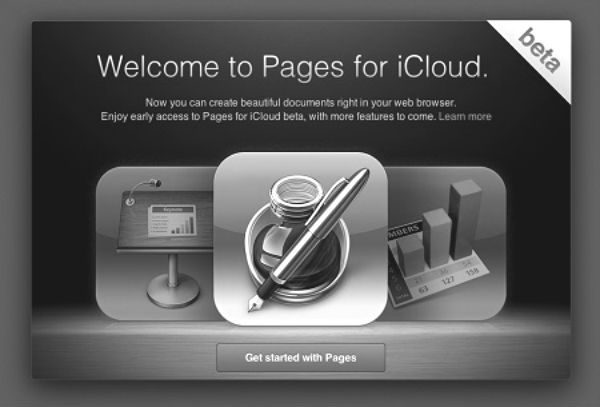Apple officially offered the trio of iWork for iCloud apps to anyone, even non-Apple users, and added 1GB of complementary iCloud storage to use with the productivity software.

Two weeks ago, Apple (AAPL) opened up the trio of iWork for iCloud beta apps–Pages, Numbers and Keynote–to anyone, even users without an iOS device or a Mac, with signing up for an Apple ID as the only requirement, but limited the offer to the iCloud Beta website.
Well, that test didn’t last long. Now, the vendor has gone another step further and updated the regular iCloud site to include the offer, adding 1GB of complementary iCloud storage to use with the productivity software. Users with an iOS mobile device or a Mac setting up an iCloud account will get 5GB of storage and can gain access to the full featured versions of the software. iCloud.com’s-only apps can be accessed from recent versions of Safari, Firefox, Chrome, and Internet Explorer.
Access to Apple’s iWork productivity apps–Pages, Numbers, and Keynote for iCloud are web versions of the vendor’s productivity suite–previously was confined to users owning an iOS device or a Mac. But the vendor’s iCloud web access holds the potential for Apple to corral new users to its platform and compete with Microsoft’s (MSFT) Office online package.
The juxtaposition of how Microsoft has opened its products to multiple platforms as Apple expands its iWorks for iCloud access to non-Apple users presents an interesting marker of how much the former’s posture has changed and the latter’s is changing.
Apple first offered iWork for iCloud at its Worldwide Developers’ Conference in June, 2013 and gradually added non-developer users, subsequently opening the iCloud beta site to all registered users with an Apple ID.
As TechCrunch noted, offering the iCloud-based iWorks productivity suite to all users is a smart decision because, relatively speaking, it doesn’t cost Apple much when used as a marketing tool to lure new users to iCloud, in particular those that don’t own Apple hardware or mobile devices. Moreover, by expanding its software ecosystem, the vendor stands to gain from follow-on hardware sales.
About the Author(s)
You May Also Like


